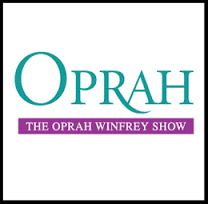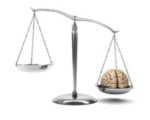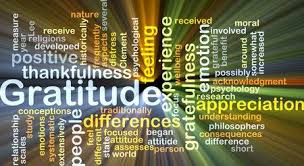It is time to become critical thinkers, not just critics.
Humanity, en masse, hasn’t been playing the smartest game. We can do the blame game – but isn’t that what has gotten where we are? And where is it that we are? We are creatures of bias.
 The root cause of our current social/political dilemmas stem from our incessant need to differentiate – and our high opinion that we are right, always right.
The root cause of our current social/political dilemmas stem from our incessant need to differentiate – and our high opinion that we are right, always right.
Sometimes this makes sense, the problem is we’ve gone too far down the rabbit hole of differentiation and bias. We are so divergent in our theosophies, political affiliations, racial and cultural distinctions. This can be enriching. However, that divergence, when combined with a culturally sponsored, deep seated habit of thoughtless bias, creates serious and potentially life threatening problems.
We’ve become creatures of bias. It’s not who we really are, but it’s become the instigator of who and what we have become. What if we individually, and most importantly, collectively admit that there’s room for improvement, plenty of room – everywhere we look?
So … why don’t we improve already?
1992, in the wake of the deadly Los Angeles riots, I watched Oprah Winfrey perform an experiment on live television. Prior to entering the studio, the audience had been intentionally separated. Blue-eyed people on one side of the room, brown eyes on the other.
Diversity expert, Jane Elliott, joined Oprah on stage. She explained how research proved that brown eyed people were superior in certain important ways than their blue eyed counterparts.
The brown eyed people started going off, on national television, that they  had always known they were smarter or more talented than their blue eyed spouses; that their brown eyed children were demonstrably better than their blue eyed offspring.
had always known they were smarter or more talented than their blue eyed spouses; that their brown eyed children were demonstrably better than their blue eyed offspring.
About half way through the show Oprah and Jane divulged the nature of their experiment. They acknowledged that there was not a shred of evidence to support such a preposterous claim.
 The audience had run with the bias, nevertheless, and nearly started another civil war, right there in Oprah’s studio.
The audience had run with the bias, nevertheless, and nearly started another civil war, right there in Oprah’s studio.
The realms of bias are mind boggling. There is systemic bias – and a zillion subsets. There’s unconscious bias, cultural bias, religious bias, political bias, gender bias, generational bias – to name a few. The most dangerous? The granddaddy of all bias? Confirmation bias. Where we’re knee-jerk receptive to everything that supports what we think and believe, or want to think and believe, and disregard out of hand anything that runs counter to our preferred views.
How do we get the masses to understand we all operate from a place of confirmation bias? How can we get ourselves, individually, to understand it? We are conditioned from birth to think this way – but for our sake and the sake of our future we must reverse the process – we must become critical thinkers instead of just critics.
How do we get in the habit of challenging our biases as a matter of course? How do we get people in the habit to at least entertain a different point of view? How do we get in the habit of explaining to our children why we endorse a certain person or policy – not just that we do?
These profound questions weigh heavily on the minds of mindful people.
Only when we are willing to appreciate another point of view, and do so by habit, and enjoy the process of understanding other’s ideas and experiences, will we come to a place of mutual understanding, co-agreement, and a feasible plan to co-exist in this world.
By the way, this is not a bias. It is my opinion … and I am right!
© 2018 Barry Moniak [700 words]
Permission To Reprint
Permission to reprint is hereby given, with the understanding that:
1 ~ Include with article: copyright notice, authors bio, contact info, click-able link to endinmind.com
2 ~ Digital copy of publication in which the article is published sent to [email protected]
3 ~ If an article needs to be adjusted by length, title, industry specific examples, stories, etc.,
call (801) 474-3500 or email [email protected]. We are happy to customize it for you.







